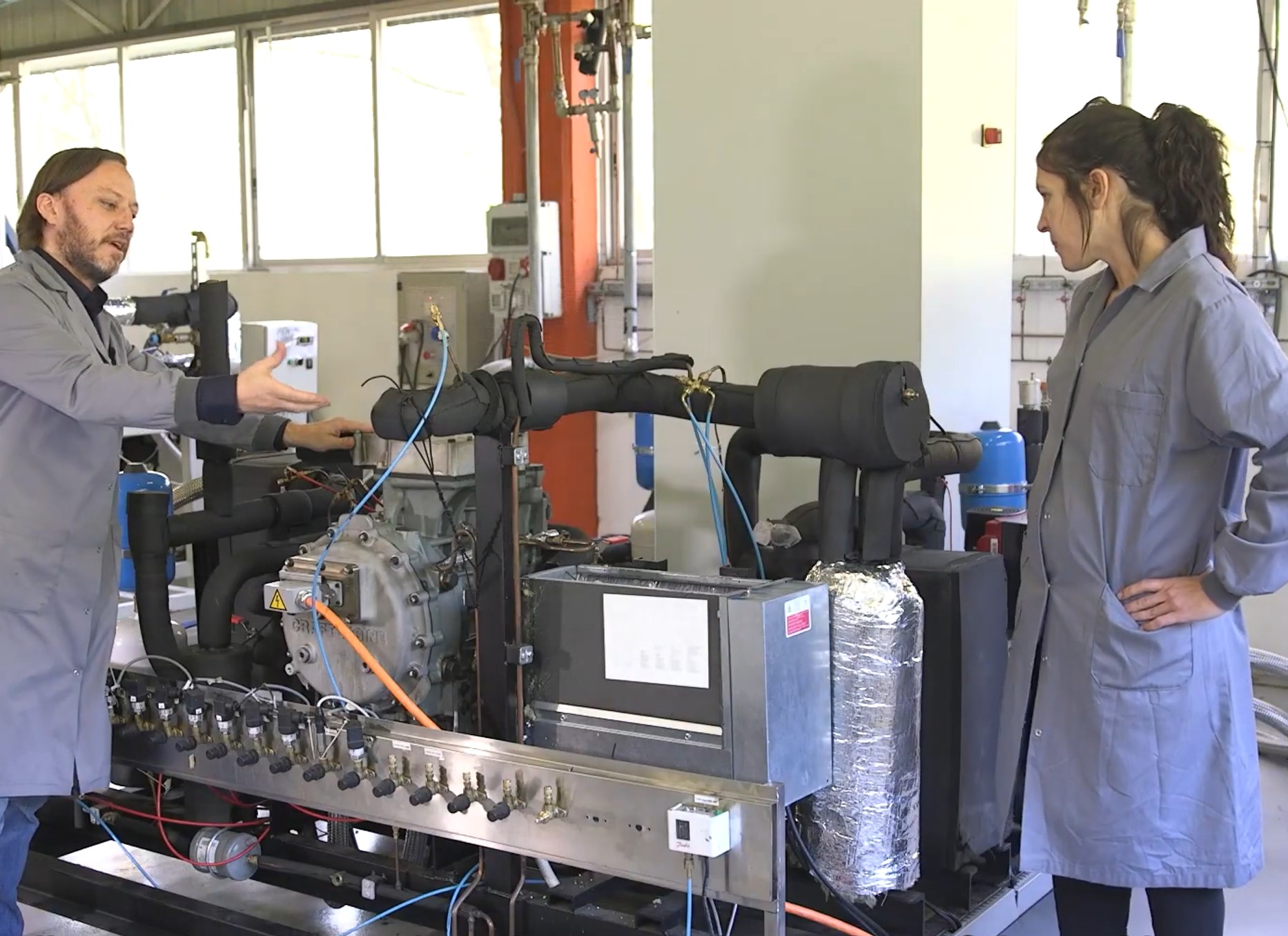The CHESTER project, coordinated by TECNALIA, proves the theoretical and experimental validity of a smart and flexible renewable energy management system for the future
12th of April 2023. During the past five years, the CHESTER consortium has been developing an innovative energy management system called compressed heat energy storage, or CHEST, which is a specific type of Carnot battery. This system is made up combining the three different technologies high-temperature heat pump, high temperature thermal energy storage and organic Rankine cycle.
In short, when excess electricity is available, the heat pump converts it into heat, which is stored in a thermal energy storage system until electricity is required. When needed, this heat is converted back into electricity using the Organic Rankine Cycle. Being a smart energy management system, able to efficiently manage different electrical and thermal sources, makes the CHEST system a great asset as it can be more than a purely electrical energy storage system.
The system can effectively integrate renewable electricity sources such as wind and solar, as well as low-temperature waste heat and solar thermal energy. Furthermore, it is able to provide not only electricity, but currently, also heat for, for example, industrial settings or district heating networks. All these features make the CHEST system a promising technology for industrial environments, since excess energy sources – electricity or heat – can be used later depending on demand in either electricity or heat.
High temperature heat pump prototype
TECNALIA, coordinator of this initiative, has developed a high temperature heat pump prototype that, coupled to the thermal energy storage unit, is able to convert the excess renewable electricity into heat, to be used afterwards either as process heat or electricity, depending on the needs. The heat pump unit, able to deliver heat up to 150ºC, has been tested in TECNALIA’s Thermal Laboratory and has shown a very good dynamic behaviour.
Initial testing of all three components showed that the design goals were met and the prototypes are fully functional. The commissioning, testing and analysis of the full CHEST laboratory prototype has proven the feasibility and potential of this concept. Electricity input to the heat pump was at about 10 kWel, and the organic Rankine cycle produced up to 9 kWel.
Flexible adaption to varying operational parameters
The combined latent and sensible storage system allowed for flexible adaption to varying operational parameters. Insight was gained for future improvements and developmental possibilities for the individual components as well as the system as a whole.
This novel prototype has successfully been commissioned and tested, demonstrating a stable operation of the first-of-its-kind CHEST system. Maider Epelde, coordinator of the project has stressed that “nowadays the CHESTER results are key towards a smart and flexible renewable energy management system for the future of Europe.” However, further research and innovation are still necessary to bring the technology to real scale.

